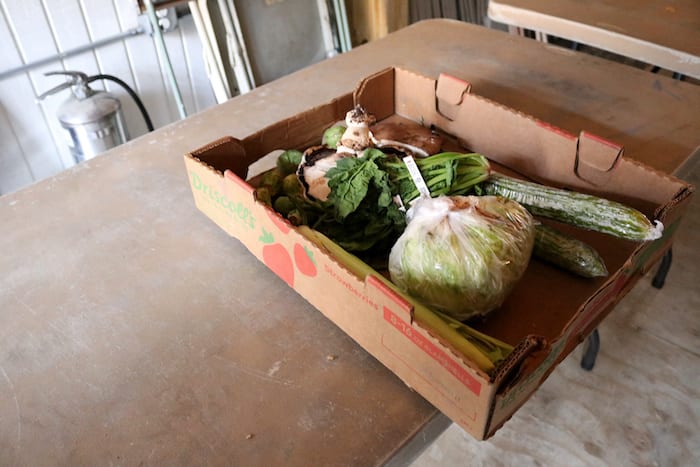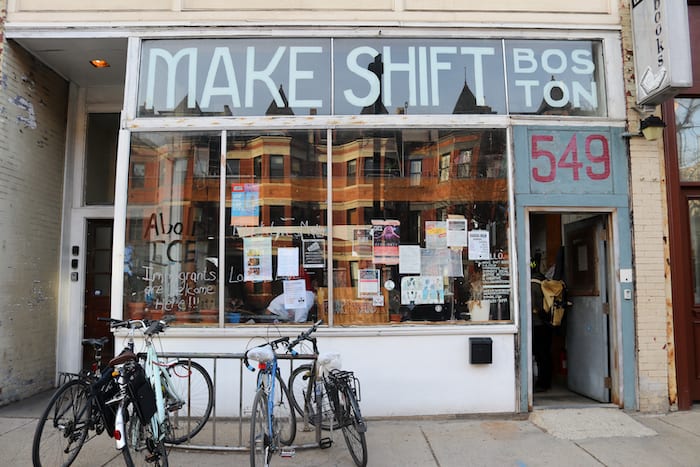
“Right now, we need to build resilient infrastructure run by the people and for the people—infrastructure that can outlast this crisis and be ready for the next one.”
The COVID-19 pandemic has decimated the US, exposing capitalism’s unsustainability, a dysfunctional healthcare system riddled with high costs and inaccessibility, and a lack of workers’ rights and protections. In Massachusetts, the situation is dire, with 256 confirmed cases as of this writing and a potential equipment shortage at hospitals, among countless other complications and reverberations.
In Greater Boston, Massachusetts General Hospital, Beth Israel Deaconess Medical Center, Brigham and Women’s Hospital, Boston Medical Center, and Tufts Medical Center reported an increase in the number of patients this past week. With testing reserved for those with severe respiratory symptoms, those who have traveled to endemic regions, or those who have been in contact with confirmed COVID-19 cases, there are seemingly significantly more uncounted positives.
To prevent the virus from spreading, the shuttering of restaurants, bars, venues, theaters, and museums has left innumerable service workers unemployed. From sex workers, to hospital employees, to freelance artists, to people experiencing homelessness and those who are incarcerated, a lot of people are in exceptionally challenging positions.
As has become increasingly clear this past week, in a society that prioritizes profits over people, neither the federal nor state and local government are equipped to provide an adequate social safety net. In response, many have turned to mutual aid, or people helping one another. In the past few weeks, such networks have popped up across Mass, with Mutual Aid Medford and Somerville (MAMAS) being one of the first on the scene.
“We live in a profoundly unequal society, and one of the things that mutual aid is trying to do is redistribute some of those resources so folks have them accessible,” MAMAS organizer Hannah Freedman said.
Freedman and other organizers set up the network on March 11, starting with a simple Google form that allows people to specify what they can offer. People who need help add to the needs list and are matched with people who can offer help. In addition to needs-matching, MAMAS employs Google Groups to facilitate discussions and organization around topics like childcare, food delivery, and food preparation. They also offer a hotline and neighborhood text-message groups. So far, they’ve received more than 400 responses to their Google Survey, and have about 80 neighborhood point people.
Many of the requests center around grocery shopping and delivery, picking up and delivering medical supplies, and financial support (people leave their Venmo and PayPal account info). In one case, Freedman said that someone who lives outside of Mass called the hotline to get help for their mom, an older person in Arlington who is unable to safely leave their house.
“In about 15 minutes we were able to hook her up with a volunteer that agreed to do some shopping and deliver the groceries to her on her porch,” Freedman said.
To ensure that mutual aid doesn’t help spread coronavirus, Freedman said that organizers encourage volunteers to follow strict CDC guidelines and refer to an online zine called “Safety Practices for Mutual Aid Food and Supply and Distribution.” Similarly, Boston Solidarity Supply Distro, a group of roughly two-dozen people that organizes grocery drives at Make Shift Boston on Mondays, takes sanitation seriously. Their delivery team drops off food and supplies at the doors of people who are sick to eliminate face-to-face contact. At the distributions, they pack and hand out food using gloves and ensure there are never more than a few people at Make Shift at the same time. Going forward, they are closing the inside to the public and shifting to passing groceries out at the door, a process intended to minimize transmission risk that is assisted by nurses and medics.

Boston Solidarity Supply Distro has people packaging and delivering food and supplies, as well as friends online spreading the word. In one day, they raised more than $3,500, and the number continues to grow.
“The more we continue distributing, the more people hear about us,” the group said in a statement. “Restaurants and people are signing up to donate food and materials. That will continue because we all support one another. Our supply distro is an attempt at leveraging the resources and connections we have as organizers in order to serve the people during this pandemic. We came together because we all saw the immediate need to get food to the hungry, and that together we have the capacity to do so. We also recognized the importance of doing that in an autonomous, class-struggle oriented way.”
With so many mutual aid initiatives in Massachusetts, local Building Up People Not Prisons organizer Kimberly Jane compiled a comprehensive Google Sheet with resources that others can add to in hopes that “it will inspire others to start [mutual aid] in their communities.” In addition to regional and neighborhood-based resources, it includes ways people can help the most vulnerable communities.
“We’re overcrowding these prisons and creating risk,” Kimberly Jane said. “They [prisoners] are not able to quarantine. They’re not able to social distance. They’re not given the resources they need to sanitize … A lot of these people are cut off from their communities and loved ones because visitation has been shut down. There’s no visitation and phone calls are exorbitantly expensive.”
In a March 12 letter, Prisoners’ Legal Services of Massachusetts urged Gov. Charlie Baker to release state prison inmates who are vulnerable to coronavirus. They also urged police to stop arresting people for minor offenses, as drug users face serious risks because most of the shelters in Greater Boston are dry shelters.
“Even if somebody is dealing with alcohol addiction, they’re not allowed to bring alcohol into those facilities,” Kimberly Jane said. “They’re not able to bring drug paraphernalia into those facilities and … they’re not able to use [drugs] in those places. I think that having safe consumption sites as well as shelters are so important right now because so much of the unhoused population are dealing with substance use disorders.”
“All of these struggles are connected, from housing and food to mass incarceration, and we can tackle them if we work together,” Boston Solidarity Supply Distro told the Dig. The group emphasizes the importance of eliminating rent, freeing all prisoners held on cash bail and all those held in immigration detention centers, free food and supplies for all, free and accessible testing for all, free treatment for all, universal paid sick leave, and ending sanctions abroad. “Right now, we need to build resilient infrastructure run by the people and for the people—infrastructure that can outlast this crisis and be ready for the next one.”
The injustices of our current system are taking center stage because of this pandemic, Kimberly Jane said. “We really do need a massive shift, and I think mutual aid is part of that shift. Knowing that you can’t necessarily rely on corporations, you can’t necessarily rely on the government to make those changes for you, we have to be ready and willing to fall back on each other and fall back on these things that we know how to do.”
HELP DIGBOSTON WEATHER THIS STORM AND CONTINUE PROVIDING ARTICLES LIKE THIS ONE
Olivia Deng is an arts and culture writer who also covers politics and social movements. Her work has appeared in DigBoston, WBUR, Boston Magazine, The Atlantic, Boston Art Review and more. She is also an illustrator and painter.

